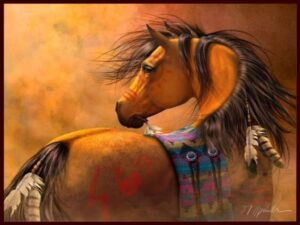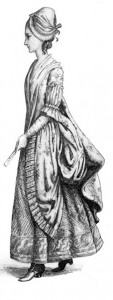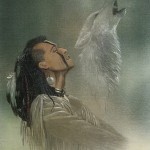 Caleb’s Crossing by Geraldine Brooks is the story of cultural, social and time-based clashes: native American Indians against 17th century English colonists, misogynists vs liberal thinkers, the morals and traditions of 17th New England vs the yearning and revolutionary demands of the younger generation. These clashes are universal and likely universally understood by every reader.
Caleb’s Crossing by Geraldine Brooks is the story of cultural, social and time-based clashes: native American Indians against 17th century English colonists, misogynists vs liberal thinkers, the morals and traditions of 17th New England vs the yearning and revolutionary demands of the younger generation. These clashes are universal and likely universally understood by every reader.
The story is about the developing friendship of Beth, a teenaged Massachusetts settler and Caleb, a young Native American Indian from a local tribe which lives nearby.
The book is a slow read because it uses language and vocabulary likely used by the settlers of that region and time. Reader’s unfamiliarity with the language can make reading the novel more difficult and challenging but like slow food, it makes it all more savourable. The universality of the clashes and conflicts of the story draw the reader into it slowly, more irresistibly when the hint of a potential love interest is introduced a couple of dozen pages into the read.
Our heroine, Beth, is a liberal thinking teen who wants to develop herself. She wants to be taught as the boys of the village are. She wants to learn the various languages they are being taught, and she wants to learn the things her cleric father is teaching to his students. She is intelligent and determined and yearns to learn, to grow intellectually. She is wise beyond her years as shown by how she holds her tongue when speaking out would have put her in open conflict with her father and the village elders. She is curious and eager to learn, anything and everything, though she fills this pursuit with questioning and scepticism. For example, she questions the possibility and credibility of Caleb’s society having numerous gods, gods of animate and inanimate things. Her logic questions the reasonableness of having such beliefs.
taught as the boys of the village are. She wants to learn the various languages they are being taught, and she wants to learn the things her cleric father is teaching to his students. She is intelligent and determined and yearns to learn, to grow intellectually. She is wise beyond her years as shown by how she holds her tongue when speaking out would have put her in open conflict with her father and the village elders. She is curious and eager to learn, anything and everything, though she fills this pursuit with questioning and scepticism. For example, she questions the possibility and credibility of Caleb’s society having numerous gods, gods of animate and inanimate things. Her logic questions the reasonableness of having such beliefs.
Early in the story, Beth questions her way of life, the way of life of girls in her society when she realizes that even in marriage, others make her decisions for her, about her, for her and without any input from her. It angers her but she suppresses the “little ember of anger within her” which if let loose would have flared into revolutionary flames. Her resentment at being literate but not learned takes root early and like a sore, it festers. Occasionally, it erupts and bursts forth aggressively as when she reacts with verbal anger against Caleb or even physically as when she assaulted her own brother, Makepeace.
 Caleb, on the other hand, is a more controlled version of Beth, questioning many things also but in a less intense way: the customs, traditions and ways of the whites; the white’s belief in one God who has an inexplicable role of being creator, judge and executioner of the very people He put on the face of the earth. It is a mindboggling dilemma for Caleb whose people so peacefully and accept the trials and tribulations of life with no questioning of the role of their gods.
Caleb, on the other hand, is a more controlled version of Beth, questioning many things also but in a less intense way: the customs, traditions and ways of the whites; the white’s belief in one God who has an inexplicable role of being creator, judge and executioner of the very people He put on the face of the earth. It is a mindboggling dilemma for Caleb whose people so peacefully and accept the trials and tribulations of life with no questioning of the role of their gods.
Like Beth, Caleb, hungers for more knowledge and learning too. Perhaps he pursues an education to overcome the dominance of the whites over his society; perhaps he is merely testing his own capabilities as does his tribe’s rite of passage for a young man to endure weeks of isolation in the frigid winter wilderness. In any case, he excels at his schooling, even in languages far removed from his own native tongue: Greek, Latin and Hebrew.
Eventually, he graduates from Harvard, the first Native American to do so. It is an incredible achievement for an Indian who never had the fundamentals of education an English-born white male would have had.
The novel has twists and turns: romantic, tragic, sexual, suspenseful and exciting. Some will surprise the reader but they are commonplace events for the settlers of that time and region, like the death of Beth’s mother shortly after child birth, the untimely death of her young sister who drowned in a puddle of muddy water and the loss of her father who was lost at sea.
 Ironically, Beth, who wants the independence and freedom of any man, becomes an indentured slave to help pay for the education of her brother, Makepeace, intransigent in his view of women remaining in subservient roles to men. Her cloudy days of servitude have a silver lining. Clandestinely, she eavesdrops on Caleb and Makepeace’s daily lessons and though she has no opportunities of classroom repartee as the males, she excels at learning the languages they do. She also demonstrates a facility with the native Indian language and learns it better than her father which she demonstrated when her father went to aid the Indians during a time of illness. Being a church minister, he preached to the Indians and Beth flinched often when she recognized his flagrant errors in speaking the Indian language. Revealing her knowledge of the language would have embattled her with her more liberal thinking father. Instead, she said nothing but the customs and traditions of the times are deeply rooted even in her more moderately minded father who chastises his daughter for dreaming to learn more, to learn as a male would. He cautions her that these are sinful yearnings!
Ironically, Beth, who wants the independence and freedom of any man, becomes an indentured slave to help pay for the education of her brother, Makepeace, intransigent in his view of women remaining in subservient roles to men. Her cloudy days of servitude have a silver lining. Clandestinely, she eavesdrops on Caleb and Makepeace’s daily lessons and though she has no opportunities of classroom repartee as the males, she excels at learning the languages they do. She also demonstrates a facility with the native Indian language and learns it better than her father which she demonstrated when her father went to aid the Indians during a time of illness. Being a church minister, he preached to the Indians and Beth flinched often when she recognized his flagrant errors in speaking the Indian language. Revealing her knowledge of the language would have embattled her with her more liberal thinking father. Instead, she said nothing but the customs and traditions of the times are deeply rooted even in her more moderately minded father who chastises his daughter for dreaming to learn more, to learn as a male would. He cautions her that these are sinful yearnings!
The close of the book is superbly written, eliciting sadness and pathos. Beth, old, wrinkled and bedraggled by the ravages of time, reminisces about her life, about what could have been, what might have been, thoughts that likely pass through the minds of every individual about to leave this life. Brookes writing here is very empathetic sounding and the pages exude sadness and melancholy.
Geraldine Brooks won a Pulitzer Prize for her novel March. For the work she must have put in for this book. another Pulitzer may have been justifiable as  she undoubtedly spent months, if not years researching the various aspects of colonial New England life. Still, she deserves much praise for writing in the vernacular of the era but in a way with an eye open to modern readers, people who would be very unfamiliar with that language and who likely would find it a challenge to understand. Brooks carries it off with surprising polish as the book is readable throughout once the readers acclimatize themselves to the language.
she undoubtedly spent months, if not years researching the various aspects of colonial New England life. Still, she deserves much praise for writing in the vernacular of the era but in a way with an eye open to modern readers, people who would be very unfamiliar with that language and who likely would find it a challenge to understand. Brooks carries it off with surprising polish as the book is readable throughout once the readers acclimatize themselves to the language.
Stripped away of the historical authenticity and linguistic legitimacy, the novel is a simple story of struggle, sexist victory and human survival.
I found the book a charming read but not one that I would praise highly, nor recommend strongly. It is a good story but lacks the dynamic power to capture and engage the reader and incarcerate him or her within the prison of its pages. It fails in that regard but the inherent curiosity of any reader keeps him or her an inmate of this print prison to the end of its final sentence.





